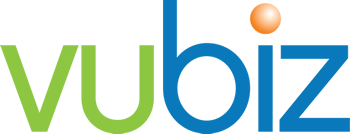 |
Written by Liz McDermott |
Artificial intelligence (AI) has become a game-changer across industries in today's job market. As businesses increasingly adopt AI technologies, the demand for professionals with AI expertise has skyrocketed. Whether you're a seasoned tech professional or just starting your career, incorporating AI skills into your resume can significantly boost your employability and open doors to exciting opportunities.
Let's explore how you can leverage AI skills to create a standout resume that catches the eye of hiring managers and recruiters alike.
|
This article is made possible by Vubiz’s clients, who upskill their workforce with our AI suite of courses: |

Understanding the AI Landscape
The field of artificial intelligence is constantly expanding. AI encompasses various technologies and applications, from machine learning algorithms to natural language processing. As a job seeker, it's crucial to understand the current AI landscape and identify the most demanding skills.
Recent studies have shown that AI and machine learning skills are among the fastest-growing in the job market. In fact, the AI & machine learning skills category has seen a remarkable 70% year-over-year growth in gross services volume. This surge in demand presents a golden opportunity for professionals looking to future-proof their careers.
To capitalize on this trend, it's essential to familiarize yourself with the various AI domains and technologies. Some key areas to focus on include:
- Machine Learning
- Deep Learning
- Natural Language Processing (NLP)
- Computer Vision
- Robotics
- Data Science and Analytics
Gaining expertise in these areas will position you well to tackle the AI-driven challenges that businesses face today.
Essential AI Skills for Your Resume
Now that we've set the stage, let's delve into the specific AI skills that can make your resume stand out. Remember, the goal is not just to list these skills but to demonstrate how you've applied them in real-world scenarios.
1. Programming Languages for AI
Proficiency in programming languages is the foundation of AI development. While many languages are used in AI, some are more prevalent than others. Here are the top programming languages you should consider adding to your skill set:
- Python: Widely regarded as the go-to language for AI and machine learning
- R: Popular for statistical computing and data analysis
- Java: Used in developing enterprise-level AI applications
- C++: Preferred for performance-critical AI systems
- Julia: Gaining traction for its speed and ease of use in scientific computing
When listing these skills on your resume, mention your proficiency level and any relevant projects or applications you've worked on using these languages.
2. Machine Learning Algorithms
Machine learning is at the heart of many AI applications. Familiarizing yourself with machine learning algorithms and techniques can significantly enhance your resume. Some key areas to focus on include:
- Supervised Learning: Linear regression, logistic regression, decision trees
- Unsupervised Learning: Clustering algorithms, dimensionality reduction
- Reinforcement Learning: Q-learning, policy gradients
- Deep Learning: Neural networks, convolutional neural networks (CNNs), recurrent neural networks (RNNs)
Highlight your experience implementing these algorithms or working with popular machine learning libraries such as scikit-learn, TensorFlow, or PyTorch.
3. Data Preprocessing and Feature Engineering
AI models are only as good as the data they're trained on. Demonstrating your ability to prepare and manipulate data for AI applications is crucial. Key skills in this area include:
- Data cleaning and normalization
- Feature selection and extraction
- Handling missing data
- Dimensionality reduction techniques
- Data augmentation
Showcase your experience with tools like Pandas, NumPy, and SciPy, and provide examples of how you've improved model performance through effective data preprocessing.
4. Natural Language Processing (NLP)
As AI systems increasingly interact with human language, NLP skills have become highly sought after. Some critical NLP skills to highlight on your resume include:
- Text classification and sentiment analysis
- Named entity recognition
- Machine translation
- Text summarization
- Question answering systems
Mention any experience you have with popular NLP libraries such as NLTK, spaCy, or Gensim, and describe any projects where you've applied these skills.
5. Computer Vision
Computer vision is another rapidly growing field within AI, with applications ranging from facial recognition to autonomous vehicles. Key skills in this area include:
- Image classification and object detection
- Image segmentation
- Face recognition
- Optical character recognition (OCR)
- Video analysis
Highlight your experience with computer vision libraries like OpenCV or frameworks like YOLO, and describe any projects where you've implemented these techniques.
6. Big Data Technologies
AI often involves working with massive datasets, making knowledge of big data technologies invaluable. Some key skills to showcase include:
- Distributed computing frameworks (e.g., Apache Hadoop, Apache Spark)
- NoSQL databases (e.g., MongoDB, Cassandra)
- Data warehousing solutions (e.g., Amazon Redshift, Google BigQuery)
- Stream processing (e.g., Apache Kafka, Apache Flink)
Describe how you've used these technologies to handle large-scale data processing for AI applications.
7. Cloud Platforms for AI
Many AI workloads are now run in the cloud, making familiarity with cloud platforms a valuable skill. Highlight your experience with:
- Amazon Web Services (AWS) AI services
- Google Cloud AI Platform
- Microsoft Azure AI
- IBM Watson
Mention any certifications you've earned in these platforms and describe projects where you've deployed AI models to the cloud.
8. AI Ethics and Responsible AI
Understanding the ethical implications and ensuring responsible AI development is crucial as AI becomes more prevalent. Demonstrate your knowledge of:
- Bias detection and mitigation in AI systems
- Fairness and transparency in machine learning
- Privacy-preserving AI techniques
- Explainable AI (XAI) methods
Highlight your experience implementing ethical AI practices or participating in AI governance initiatives.
Showcasing Your AI Skills Effectively
Now that we've covered the essential AI skills let's discuss how to present them on your resume to capture the attention of hiring managers and recruiters.
Tailor Your Resume to the Job Description
When applying for AI-related positions, carefully review the job description and tailor your resume accordingly. Highlight the skills and experiences that align closely with the role's requirements. Use keywords from the job posting to ensure your resume passes through applicant tracking systems (ATS).
Quantify Your Achievements
Use concrete numbers and metrics to demonstrate the impact of your AI skills. For example:
- "Developed a machine learning model that improved customer retention by 25%"
- "Implemented an NLP-based chatbot that reduced customer service response times by 40%"
- "Optimized a computer vision algorithm, resulting in a 30% increase in object detection accuracy"
These quantifiable achievements provide tangible evidence of your skills and their value to potential employers.
Highlight Relevant Projects
Include a section on your resume dedicated to AI projects you've worked on. This could include academic projects, personal projects, or open-source contributions. For each project, briefly describe:
- The problem you were solving
- The AI techniques and technologies you used
- The results or impact of the project
This section lets you showcase your practical experience and creativity in applying AI skills.
Emphasize Continuous Learning
AI is constantly evolving, so it's important to demonstrate your commitment to staying up-to-date. Include a section on your resume for relevant certifications, online courses, or workshops you've completed. Some reputable sources for AI education include:
- Coursera's AI and Machine Learning specializations
- edX's AI courses from top universities
- Fast.ai's practical deep-learning courses
- Google's AI education resources
Showing you're actively expanding your knowledge can make you a more attractive candidate to potential employers.
Addressing Common Challenges
You may encounter some challenges as you work on incorporating AI skills into your resume. Let's address a few common concerns:
What if I'm New to AI?
If you're just starting out in AI, focus on transferable skills from your current field that are relevant to AI. For example, if you have a statistics or data analysis background, highlight how these skills can be applied to machine learning. Additionally, emphasize any AI-related coursework or personal projects you've undertaken to show your dedication to learning.
How Much Detail Should I Include?
While it's essential to showcase your AI skills, be mindful of your resume's overall length and readability. Aim for a balance between providing enough detail to demonstrate your expertise and keeping your resume concise. Use bullet points and clear, straightforward language to efficiently convey your skills and experiences.
How Can I Stand Out in a Competitive Field?
To differentiate yourself in the competitive AI job market, consider:
- Developing a niche expertise in a specific AI domain or industry application
- Contributing to open-source AI projects or publishing research papers
- Participating in AI hackathons or competitions (e.g., Kaggle)
- Building a portfolio of AI projects and sharing them on platforms like GitHub
These activities can help you build a unique profile that differentiates you from other candidates.
Future-Proofing Your AI Skills
As the field of AI continues to evolve rapidly, it's crucial to stay ahead of the curve. Here are some emerging trends and skills to keep an eye on:
1. Generative AI
With the rise of models like GPT-3 and DALL-E, generative AI is becoming increasingly important. Familiarize yourself with:
- Large language models and their applications
- Text-to-image generation techniques
- Generative adversarial networks (GANs)
2. Edge AI
As AI moves closer to end devices, edge computing, and embedded AI skills are becoming more valuable. Focus on:
- Optimizing AI models for resource-constrained devices
- TinyML (machine learning for embedded systems)
- Edge AI frameworks and tools
3. AI for Sustainability
With growing concerns about climate change, AI applications for sustainability are gaining traction. Explore:
- AI for renewable energy optimization
- Machine learning for climate modeling
- AI-driven solutions for sustainable agriculture
4. Quantum AI
As quantum computing advances, its intersection with AI opens up new possibilities. Keep an eye on:
- Quantum machine learning algorithms
- Quantum neural networks
- Hybrid classical-quantum AI systems
By staying informed about these emerging trends and continuously updating your skills, you can ensure that your AI expertise remains relevant and in demand.
Conclusion
Incorporating AI skills into your resume can significantly enhance your career prospects in today's technology-driven job market. By focusing on essential AI skills, effectively showcasing your experiences, and staying up-to-date with emerging trends, you can be a valuable asset to potential employers.
Remember, the key to success in the AI field is not just about listing skills on your resume but demonstrating how you've applied those skills to solve real-world problems. Continuously seek opportunities to expand your knowledge, work on challenging projects, and contribute to the AI community.
As you embark on your AI career journey, remember that the field is constantly evolving. Stay curious, be open to learning, and don't be afraid to take on new challenges. With dedication and the right skills, you'll be well-equipped to thrive in the exciting world of artificial intelligence.
Are you new to AI?
Vubiz’s introductory AI courses will help you learn the basics of AI for the workplace:
- AI Information Security
- AI Best Practices for Creating Prompts
- Introduction to Generative AI
- Overview of Basic AI Tools
Contact our sales team if you are interested in providing this training to your staff.
